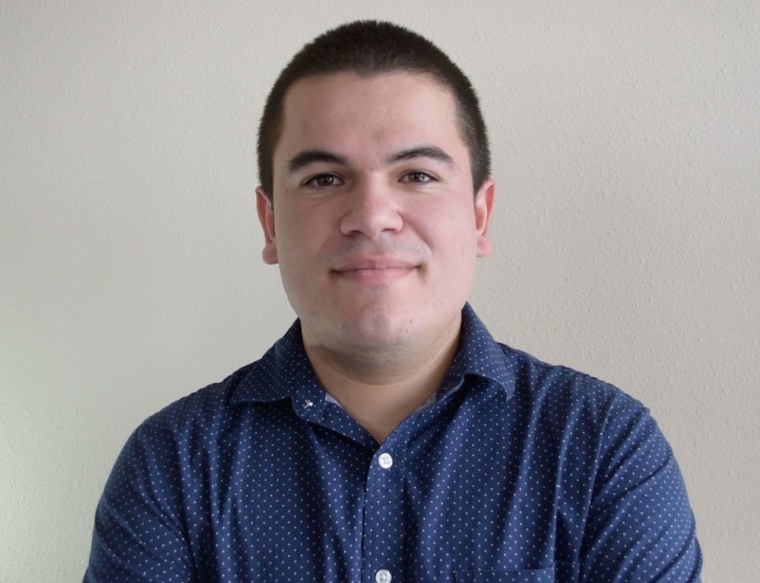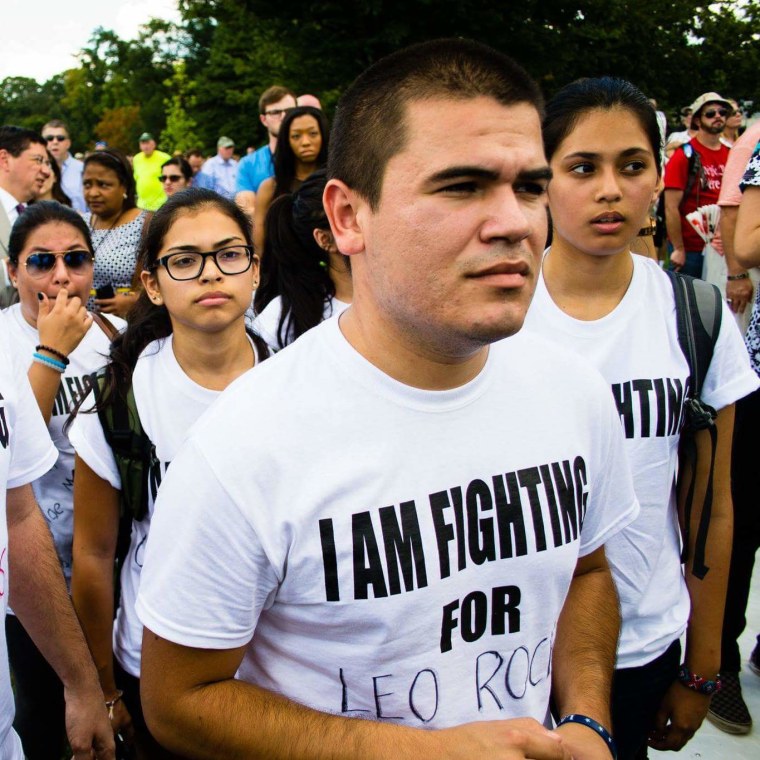
Carlos Vera knew he would encounter obstacles when he came to Washington, D.C. as a student at American University.
Coming from California, Vera said he lacked some of the resources of his more privileged peers. It didn't help that, when he started doing internships in the nation's capital, he found most of them to be unpaid.
"I was interning about 25 hours a week in Congress unpaid while working a part-time job and taking a full course load at college," said Vera, who is originally from Colombia. "And when I would walk down the halls of Congress, no one would look like me, but the janitors."
RELATED: Hispanic Heritage Month 2017: #NBCLatino 20
It was those experiences that drove Vera to organize the janitors at American University, whose children, unlike the children of other faculty members, had to pay full tuition. He became the student chair of the Justice for AU Workers Coalition, and helped push a full scholarship for dependents of contracted workers at the university.
"That’s what got me interested in organizing people-powered movements," Vera said of his experiences with the AU Workers Coalition.
Vera went on to become the founder of Pay Our Interns, a bipartisan campaign created to push for compensation for interns in Washington and help bring diversity into all branches of government.
"I know in many industries, it’s all unpaid, so it’s basically keeping a lot of low-income folks from being able to take those internships," Vera said. "It’s kind of the prerequisite that we all have to do to get anywhere, but we can’t afford it."

Unpaid internships in D.C., Vera believes, keeps many working-class people from being able to take part in a system that ultimately makes decisions for their communities.
"If you have rich interns, those rich interns become staffers, and then the decisions will be in the hands of 23-year-old rich kids who are mostly white," he said. "That has implications for our democracy. We need to have them at the table."
RELATED: #NBCLatino20: Broadway’s Professor, John Leguizamo
Vera's campaign has scored important victories, like getting some U.S. Senators to agree to start paying their interns or to commit to doing so in the future. His group is also working on legislation, and will celebrate their one-year anniversary in October.
Today, Vera is in the Army reserves and works as a generator mechanic. He says he joined the military to expedite his immigration process. When he graduated from boot camp, he was an American citizen.
"With immigration, sometimes when you talk to people what you hear is, 'I get what you’re saying helping Dreamers, but what about the people that came here the right way,'" he said. "But I came here the right way, and it took 15 years to get through the system."
In the immigration process, Vera again identified economic inequalities, discrepancies that he would like to help reform.
RELATED: #NBCLatino20: The Supermodel, Joan Smalls
"Even the people that came here 'the right way,' it’s still very much a privilege," He said. "You need to have money to get a visa. A lot of folks know that this is a problem."
Vera's efforts include trying to get more Latinos in the federal government.
"Your socioeconomic status shouldn't keep you from civil service," he said. "That's anti-American."
The #NBCLatino20 honors achievers who are making our communities and our nation better. Follow their fascinating stories throughout Hispanic Heritage Month.
